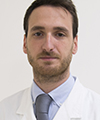Studying at the University of Verona
Here you can find information on the organisational aspects of the Programme, lecture timetables, learning activities and useful contact details for your time at the University, from enrolment to graduation.
Academic calendar
The academic calendar shows the deadlines and scheduled events that are relevant to students, teaching and technical-administrative staff of the University. Public holidays and University closures are also indicated. The academic year normally begins on 1 October each year and ends on 30 September of the following year.
Course calendar
The Academic Calendar sets out the degree programme lecture and exam timetables, as well as the relevant university closure dates..
| Period | From | To |
|---|---|---|
| 1 SEMESTRE PROFESSIONI SANITARIE | Oct 1, 2021 | Dec 23, 2021 |
| 1 e 2 SEMESTRE PROFESSIONI SANITARIE | Oct 1, 2021 | Sep 30, 2022 |
| 2 SEMESTRE PROFESSIONI SANITARIE | Jan 10, 2022 | Sep 30, 2022 |
| Session | From | To |
|---|---|---|
| Sessione d'esame Invernale | Jan 10, 2022 | Feb 25, 2022 |
| Sessione d'esame Estiva | Jul 4, 2022 | Jul 29, 2022 |
| Sessione d'esame Autunnale | Sep 1, 2022 | Sep 30, 2022 |
| Session | From | To |
|---|---|---|
| Sessione Laurea Autunnale | Oct 1, 2022 | Nov 30, 2022 |
| Sessione Laurea Primaverile | Mar 1, 2023 | Apr 30, 2023 |
| Description | Period | From | To |
|---|---|---|---|
| Tirocinio Perfusionisti 2 e 3 anno | Tirocinio Perfusionisti 2 e 3 anno | Oct 4, 2021 | Sep 30, 2022 |
| Tirocinio Perfusionisti 1 anno | Tirocinio Perfusionisti 1 anno | Jan 10, 2022 | Sep 30, 2022 |
Exam calendar
Exam dates and rounds are managed by the relevant Medicine Teaching and Student Services Unit.
To view all the exam sessions available, please use the Exam dashboard on ESSE3.
If you forgot your login details or have problems logging in, please contact the relevant IT HelpDesk, or check the login details recovery web page.
Should you have any doubts or questions, please check the Enrollment FAQs
Academic staff
 elisa.artegiani@univr.it
elisa.artegiani@univr.it
 corinnabergamini@libero.it
corinnabergamini@libero.it
 giuseppe.faggian@univr.it
giuseppe.faggian@univr.it
 maria.murgia@aovr.veneto.it
maria.murgia@aovr.veneto.it
Pighi Michele
 michele.pighi@univr.it
michele.pighi@univr.it
 0458122320
0458122320
 eliarossetto2@gmail.com
eliarossetto2@gmail.com
 bruno.sandini@aulss8.veneto.it
bruno.sandini@aulss8.veneto.it
 rocco.tabbi@aovr.veneto.it
rocco.tabbi@aovr.veneto.it
Study Plan
The Study Plan includes all modules, teaching and learning activities that each student will need to undertake during their time at the University.
Please select your Study Plan based on your enrollment year.
1° Year
| Modules | Credits | TAF | SSD |
|---|
2° Year activated in the A.Y. 2022/2023
| Modules | Credits | TAF | SSD |
|---|
3° Year activated in the A.Y. 2023/2024
| Modules | Credits | TAF | SSD |
|---|
| Modules | Credits | TAF | SSD |
|---|
| Modules | Credits | TAF | SSD |
|---|
| Modules | Credits | TAF | SSD |
|---|
Legend | Type of training activity (TTA)
TAF (Type of Educational Activity) All courses and activities are classified into different types of educational activities, indicated by a letter.
General pathology and pharmacology (2021/2022)
Teaching code
4S01610
Credits
8
Coordinator
Language
Italian
Also offered in courses:
- Technical and medical sciences - PATOLOGIA GENERALE of the course Bachelor's degree in Orthopaedics Techniques
The teaching is organized as follows:
Learning outcomes
The course integrates areas of biomedical knowledge dedicated to the pathogenesis and drug therapy of the most frequent pathologies in the professional field of interest. The objectives of the course are: 1- To know and to analyze the main mechanisms of cellular and molecular damage and repairing reactions by acquiring the ability to evaluate the most relevant macroscopic lesions 2- Acquire the basis for a rational understanding of the major pathologies relevant to the perfusionist medical practice; in particular, due to the specificity of the professional practice, particular attention will be given to the general and specific aspects of prokaryotic systems. 3- Integrate the knowledge acquired in points 1 and 2 with the main guidelines of pharmacodynamics and kinetics in order to be able to define and understand the rational basis of drug therapy of the pathological conditions of greatest interest for the professional field. PATHOLOGICAL ANATOMY MODULE Educational objectives: To recognize the main macroscopic and microscopic lesions in the gross room and histopathology. To perform macroscopic evaluation of the main organs: heart, lungs, kidney, brain and liver. To perform histopathological evaluation of inflammatory, neoplastic and malformative lesions on common H&E tissue slides. To recognize the add-value of the main laboratory techniques in Pathology Lab and useful for diagnostics such as immunohistochemistry, FISH (fluorescence in situ hybridization) and mutational analysis. GENERAL PHARMACOLOGY MODULE. Educational objectives: General objectives: The student understands the meaning of drug interaction, the basics of the generation of therapeutic and undesirable effects; knows the functional differences of the different preparations of a drug, the main pharmacokinetic concepts and the implications for the therapeutic plan. The student knows the mechanisms of action, the effects, the indications for use and the main side effects of the most important classes of drugs for the treatment of the cardiovascular disease. Specific objectives: at the end of the Pharmacology module, the student will be in possession of the scientific and operational knowledge useful to: • understand the mechanisms of action of drugs that underlie their main, side and toxic effects; • know and understand the methods of clinical evaluation of drugs and their post-marketing monitoring; • understand the bases of the rational approach of the drug administration; • understand the use, and know the associated risks, of the most important classes of drugs for the treatment of the cardiovascular diseases. CLINICAL MICROBIOLOGY MODULE The student should know the structural and biological properties of pathological microorganisms and the related mechanism of pathogenesis. Moreover, the student should know the microorganisms involved in cardiopulmonary diseases and the methods of infection diagnosis. GENERAL PATHOLOGY MODULE Educational objectives: The course aims to illustrate the main mechanisms of cellular and molecular damage and reactions to biological damage, with particular focus to the description of the inflammatory processes resulting in healing or chronicization and of the hemostatic mechanisms occurring in response to vascular damage.
Program
The course is divided in 4 modules: General and Anatomic Pathology, Clinical Microbiology and Pharmacology
The programme of General Pathology concern the concept of disease with special reference to the inflammation process, its molecular and cellular components, the signaling involved and its development and evolution as defensive event.
The programme of Anatomic Pathology will cover the gross sampling of heart, CNS, lung and kidney and the histopathology of major neoplastic, preneoplastic and inflammatory diseases.
The programme of the module of clinical microbiology focus on the structural and biochemical organization of micro-organisms (bacteria, virus, yeast, protozoa). Special emphasis will be given to knowledge required for elaborating accurate diagnosis in clinical microbiology, with focus on infections affecting cardio-vascular system and/or generating sepsis and nosocomial problems.
The programme of General Pharmacology will provide the knowledge on drug/receptor interaction, generation of effects (therapeutic and adverse reactions) and pharmacokinetics/metabolism. The module will focus on classes of drugs used for the control of cardio-vascular disorders.
Bibliography
Examination Methods
Oral/written (multiple choice/free) depending on individual module; final score is computed opn the basis of results of individual module (weighted based on % CFU)
Career prospects
Module/Programme news
News for students
There you will find information, resources and services useful during your time at the University (Student’s exam record, your study plan on ESSE3, Distance Learning courses, university email account, office forms, administrative procedures, etc.). You can log into MyUnivr with your GIA login details: only in this way will you be able to receive notification of all the notices from your teachers and your secretariat via email and soon also via the Univr app.
Graduation
Documents
| Title | Info File |
|---|---|
|
|
pdf, it, 89 KB, 20/11/23 |
Gestione carriere
Orario Lezioni
Documents
| Title | Info File |
|---|---|
|
|
pdf, it, 256 KB, 15/04/24 |
|
|
pdf, it, 194 KB, 03/04/24 |
|
|
pdf, it, 186 KB, 04/04/24 |
Appelli d'esame
in questa pagina verranno pubblicati i calendari degli esami del Corso di Laurea
Documents
| Title | Info File |
|---|---|
|
|
pdf, it, 128 KB, 16/04/24 |























